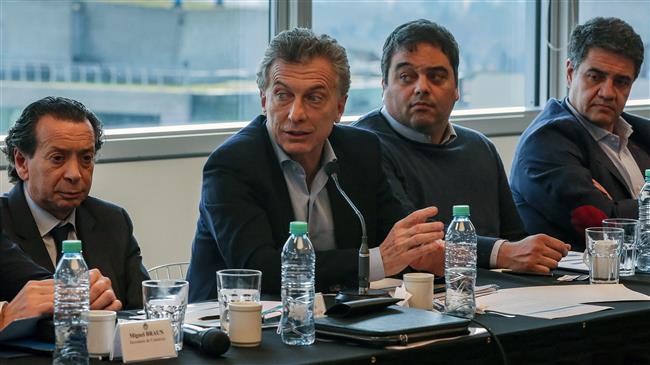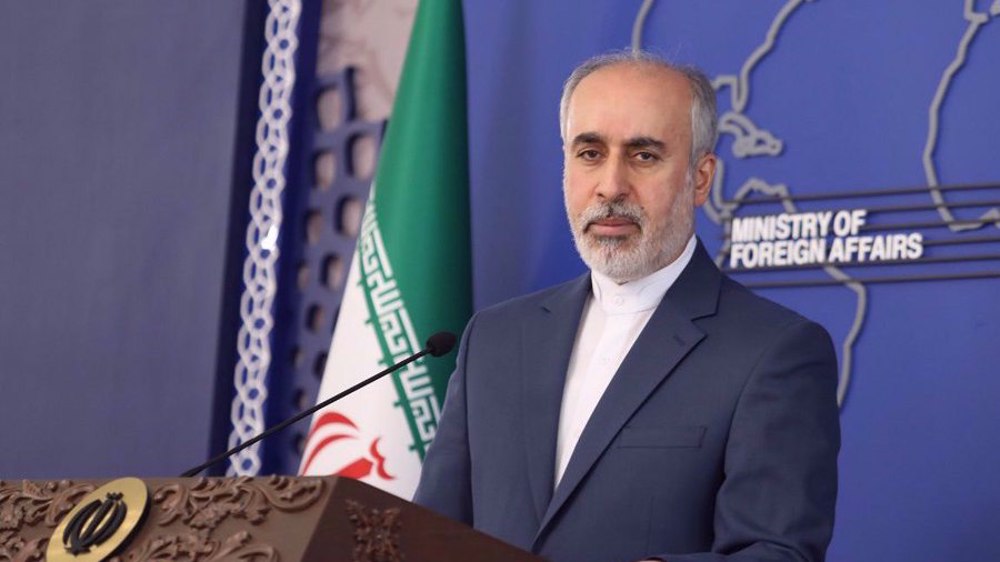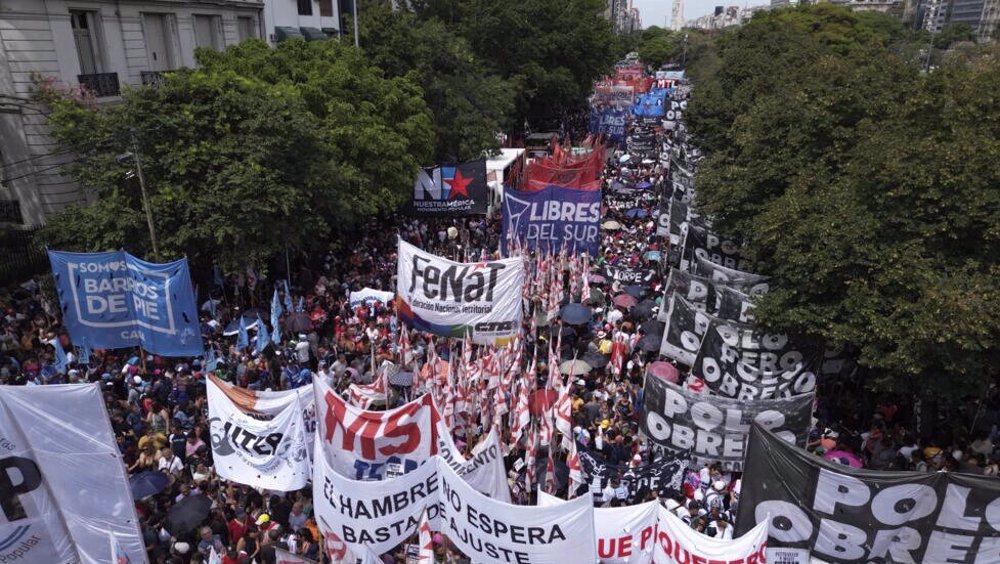Argentina, IMF agree accelerated loan payout
Argentina's President Mauricio Macri says that the International Monetary Fund has agreed to accelerate funding in support of his government's austerity program, but the move did little to calm the market as the country's currency came under renewed pressure.
IMF chief Christine Lagarde said the Washington-based lender would look at speeding up payments of the bank's $50 billion loan after talks with Macri earlier Wednesday.
The IMF approved the $50 billion, three-year standby loan in June.
Lagarde said the IMF would work to strengthen its arrangement with Argentina and "re-examine the phasing of the financial program".
The "more adverse international market conditions" battering Argentina's economy "had not been fully anticipated," she admitted in a statement.
Macri called for the early release of the funds in a phone call with Lagarde on Wednesday.
It came amid heightened volatility in Argentina's financial and currency markets, which have been battered by uncertainty over inflation, an economic downturn and budget deficits.
The Argentine peso has lost more than 40 percent of its value against the dollar this year. Inflation is projected to surpass 30 percent by the end of 2018.
Plummeting peso
And the peso continued its decline Wednesday, plummeting 6.99 percent through the day to fall to 34.48 to the dollar by the close.
Macri had sought to soothe the turbulence in a statement before markets opened, assuring Argentines that help is on the way.
"Over the past week, we have had new expressions of lack of confidence in the markets, especially over our ability to obtain financing for 2019," Macri acknowledged.
He said the IMF would provide "all the funds necessary to guarantee the fulfillment of the financial program next year."
In return for an accelerated loan payment, the government has committed to reducing its budget deficit to 2.7 percent this year, from 3.9 percent in 2017, and to 1.3 percent of GDP next year.
Doubts over Argentina's ability to repay heavy government borrowing have grown and analysts said the move reflected growing desperation in Macri's center-right government.
"The announcement was vague and was made by the president, which has its risks," said analyst Lorenzo Sigaut of consultants Ecolatina, who said it would have been more convincing if the announcement had been made by the economy minister.
Overall doubts of an Argentine default on borrowings had been assuaged "only until Macri's term ends (in December next year) but as of 2020, they remain latent."
"The dollarization of assets is fueled internally by Argentines' distrust of the peso, because the government has promised much on the economy but hasn't delivered," said Sigaut.
Part of the $50 billion loan is to be allocated to support the budget, and the rest to the country's central bank to shore up the peso over a three-year period.
The first $15 billion tranche has already been released.
Economist Matias Carugati said there was a lack of information coming from the government to calm the markets.
"We know that the IMF is advancing money to cover us next year, but how much will they advance us and under what conditions?" he asked.
He maintained however that "the risk of a default is exaggerated."
"Argentina does not have a solvency problem, but more a short-term liquidity issue. It's urgent to achieve financial calm and then see how to repair the damage."
The economy contracted 6.7 percent in June, the third month in a row of negative growth, and the annual growth rate was a negative 0.6 percent.
(Source: AFP)
UNRWA unraveled amid Israel's allegations, reduced intl. support
Palestinian journalist, a Sobh Media Festival awardee, killed in Gaza hours before truce
Jan. 15: ‘Axis of Resistance’ operations against Israeli occupation
VIDEO | US fires: Criticism mounts over govt. failure to respond
VIDEO | Fears, hope in Gaza amid intensified ceasefire efforts
VIDEO | Press TV's news headlines
Hamas: Ceasefire agreement result of steadfastness, resistance in Gaza over 15 months
Hamas thanks Iran, Resistance Front following achievement of ceasefire in Gaza













 This makes it easy to access the Press TV website
This makes it easy to access the Press TV website